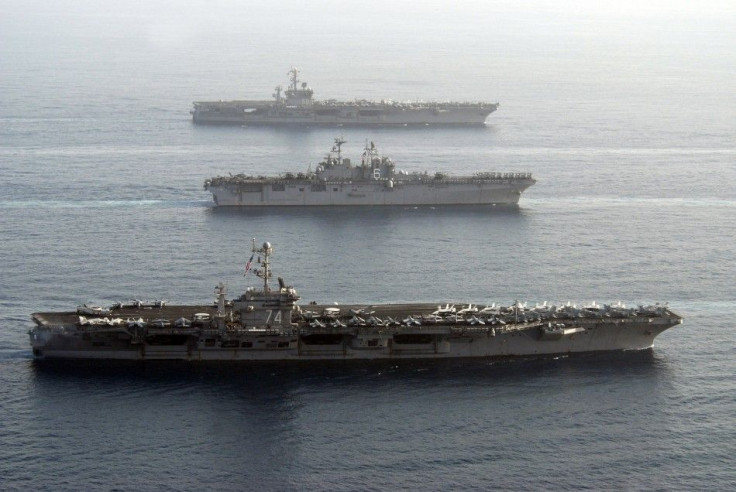Oil Prices - Saudis, Gulf States Ready to Offset Loss of Iran Oil
Analysis

Iran's threat to block all oil shipments in the Strait of Hormuz -- a vital shipping lane through which one-sixth of the world's oil flows -- has initially boosted oil prices, but traders may calm down if they view a potential counter-move by Persian Gulf states as adequate supply compensation.
Gulf Arab nations are prepared to compensate for any loss of Iranian oil in the world market, in the event Western nations impose sanctions on Iran's oil shipments, a senior Saudi official said after Iran amped-up its rhetoric Tuesday about shutting off the key supply route on the Persian Gulf, The Associated Press reported Wednesday.
Oil, which had traded above $101 per barrel Tuesday, eased slightly on Wednesday, with West Texas Intermediate Crude dropping 71 cents to $100.60 per barrel.
France Wednesday urged Iran to adhere to international law allowing freedom of navigation in the Strait of Hormuz after Tehran's threat. The strait links the Persian Gulf to Indian Ocean. As noted, one-sixth of the world's oil -- and one-third of the world's oil transported on the sea -- passes through the strait daily.
We call on the Iranian authorities to respect international law and in particular the freedom to navigate international waters and straits, French Foreign Ministry spokesman Bernard Valero said in a regular online news briefing on Wednesday, Reuters reported Wednesday.
Tehran said on Tuesday it would stop oil transiting through the Strait of Hormuz if sanctions were imposed on its crude oil exports because of its nuclear ambitions.
On Wednesday, Iranian Navy Chief Adm. Habibollah Sayyari said Iran's Navy can easily block the strait if the order is given. His comments to Iran's English-language state Press TV came as Iran held a 10-day drill in international waters near the strategic chokepoint.
Western nations are growing increasingly impatient with Iran over its nuclear program, and worries abound that new sanctions on the country could target its oil export.
Increased production by other major oil states, including members of OPEC, represents one partial tonic for a potential Iranian move in an energy-hungry world. Military hardware in the Persian Gulf region, particularly by the United States, represents the other partial tonic. The U.S. Navy's Fifth Fleet is based in Bahrain, located on the Persian Gulf's south shoreline.
The threat by Iran to close the Strait of Hormuz supported the oil market yesterday, but the effect is fading today as it will probably be empty threats as they cannot stop the flow for a longer period due to the amount of U.S. hardware in the area, Thorbjoern bak Jensen, oil analyst with Global Risk Management, told Reuters Wednesday.
Iran last attempted to disrupt Gulf shipping during its decade-long war with Iraq. Since that period the United States established agreements with Gulf Arab states and also established the headquarters for the Fifth Fleet in Bahrain after that incident.
Oil/Energy Analysis: Although Iran is capable of inflicting damage on oil installations, tankers and other Persian Gulf property, Iran still does not have the naval power to block the strait for an extended period. Iran's air force also would be no match for U.S. and Gulf nation fighter jets, which are based in the region to counter any threat to the strait.
Given Iran's limited military capability, put the latest Iranian threat in the category of over-heated rhetoric designed to nudge selected nations to support Iran's view that additional sanctions are unjustified. The United Nations has imposed four rounds of sanctions on Iran because it is concerned Iran is developing nuclear weapons and due to the nation's refusal to suspend uranium enrichment. The sanctions have weakened Iran's economy and the current Hormuz closure threat most likely is an effort to court states to support Russia's and China's call for new diplomatic efforts and a new round of talks on the nuclear program dispute. In short, it's high unlikely that Iran will attack Gulf installations or attempt to block the strait.
--
© Copyright IBTimes 2024. All rights reserved.





















